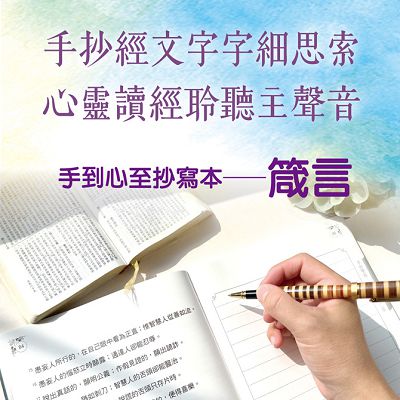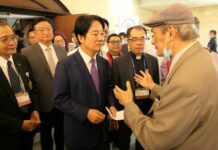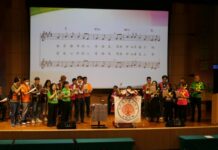3133 Edition
March 12-18, 2012
Headline News
Academics and religious leaders promote restorative justice as the best healing method
Reported by Chen Yi-hsuan
Written by Lydia Ma
“The Goddess of Justice’s New Weighting Scale” seminar was held on March 5-7, 2012 in Taipei, Tainan, and Hsinchu. Sponsors of this seminar invited academics and experts of restorative justice from Taiwan, Canada, US, Japan, New Zealand and Philippines to take part in this seminar and they presented research findings with one another. This gathering became a dialogue between academics, religious leaders, and NGO representatives.
The session held in Tainan was scheduled on Mach 6 at Chang-Jung Christian University and focused on the following 4 themes: “Restorative Justice and Offenders, Victims, and Communities”, ”The Cultural and Historical Threads in Restorative Justice”, “How NGOs Can Promote Restorative Justice ”, and “The Spiritual Roots of Restorative Justice”
Toyo University Professor Hosoi Yoko gave a brief overview of 3 Japanese social organizations that are promoting restorative justice in Japan and said that one of the main tasks for these organizations is to arrange a meeting between offenders and victims so that both sides can have an honest, heart-felt conversation.
Hosoi added that these organizations have created a “Bank of Apology Letters” to store apology letters written by offenders to their victims. The purpose of this “bank” is to give offenders a means to have some closure and start fresh after writing down their feelings. These organizations also hope that the victims and their families may one day see these honest letters of apology.
Hosoi underscored that restorative justice is not yet popular in Japan because the government has yet to actively promote this perspective. As result, victims of crimes and society at large still tend to focus mainly on retribution and the rights of victims.
Academia Sinica assistant researcher Hsu Chia-hsin said that people in Taiwan tend to prefer conflict resolution, restoration, and compromise in civil lawsuits, but they treat criminal cases differently. In criminal cases, people believe that one party is definitely at fault and must pay the price and there is no room for negotiation. For this reason, promoting restorative justice needs more time and more effective strategies.
The sponsors also invited Islamic, Buddhist, Catholic, and Protestant leaders to attend the seminar and give their take on restorative justice based on their religious convictions. Fr. Willy Ollevier said that neither freedom nor justice can be decided by one individual alone, but must be decided by a community of people working together. Kaohsiung Mosque Imam Chen Yung-wu said that people must respect human rights and learn to forgive. Dharma Drum Buddhist College President Master Huimin reminded the audience that just as doctors battle diseases instead of patients, the same applies to judicial law – it must destroy crime and not the individual.
PCT Associate General Secretary Lyim Hong-tiong referred to the Lin Family Massacre and Christ’s crucifixion when he spoke. He said that crime inflicts damages to both offenders and victims and even bystanders, but the purpose of restorative justice is to heal these people. With this in mind, emphasis moves from indemnity and apology to forgiveness because of a deep conviction that God has already forgiven us and forgiveness is ultimately the only way to genuine healing and freedom.






